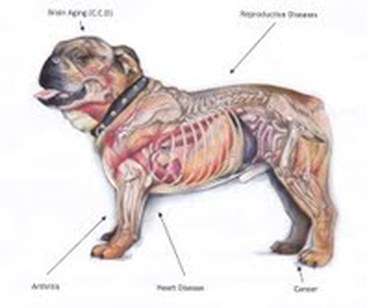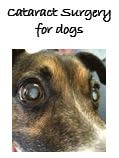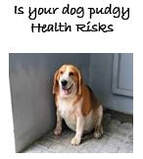|
We often don't realize how quickly those'Golden Years' can creep up on our dogs and often without us really noticing it! Do make sure that you are totally covered for when your dog is a 'senior' as this can be involve more vet visits, and often disease creeps in. Do investigate Pet Insurance which will help you to provide the very best care that your dog is entitled too. Have a look at our website for the various plans we have available, and you are welcome to get in touch! www.genricpet.co.za
|
A Guide On How To Lengthen and Improve Your Senior Pet’s Life
Courtesy Dr Rigby & Dr. Norton
WHEN IS MY PET A SENIOR CITIZEN?
In most cases our pets are classified as senior from 7 years of age, although Large/Giant Breeds it is from 5 years old.
Life expectancy for most small breed dogs and cats is 14-16y. For Large Breed dogs it is 10 – 12 years.
Just like us, they start to slow down – exercise less and put on weight.
REGULAR CHECK UPS ARE PROBABLY MORE IMPORTANT NOW AS:-
The earlier organs ‘slow down’ pr diseases are picked up – the more likely these can be treated, the quicker the response to treatment and the better the prognosis.
WHAT HAPPENS WHEN MY PET GETS OLDER?
(Rare – if you’re pet has been sterilized)
HOW DO WE PICK THESE UP AND WHAT CAN BE DONE ABOUT IT?
WE RECOMMEND A GERIATRIC PROFILE AT LEAST EVERY TWO YEARS FROM 7 YEARS OF AGE
This will tell us if your pet has:
**These blood tests can be done while you wait***
DIET
Why is senior food important?
Weight gain and diabetes
EXERCISE
How much? --- it varies but around 10-15mins twice daily – but also LOOK at your pet’s body languag e.g. limping, panting, tongue is blue
HOW WOULD I SUSPECT MY PET HAS A PROBLEM?
REMEMBER PREVENTION IS BETTER THAN CURE!!!!!!!!
In most cases our pets are classified as senior from 7 years of age, although Large/Giant Breeds it is from 5 years old.
Life expectancy for most small breed dogs and cats is 14-16y. For Large Breed dogs it is 10 – 12 years.
Just like us, they start to slow down – exercise less and put on weight.
REGULAR CHECK UPS ARE PROBABLY MORE IMPORTANT NOW AS:-
- Internal organs start to ‘slow down’ (work less efficiently)
- The likelihood of cancer increases
- Immune system slows down thus takes longer to recover from infectious diseases e.g. Tick Bite Fever
The earlier organs ‘slow down’ pr diseases are picked up – the more likely these can be treated, the quicker the response to treatment and the better the prognosis.
WHAT HAPPENS WHEN MY PET GETS OLDER?
- Weight Gain
- Arthritis
- Dental Disease
- Lumps and Bumps
- Reproductive problems
(Rare – if you’re pet has been sterilized)
- Kidney Failure
- Heart Failure
- Eye Problems
- Diabetes (sugar diabetes)
- Doggy Alzheimer’s (Canine Cognitive Dysfunction)
HOW DO WE PICK THESE UP AND WHAT CAN BE DONE ABOUT IT?
- A full clinical exanimation by one of our vets can pick up many of the above problems e.g. cataracts, heart murmurs, dental disease
- The History that is given to vets is VERY IMPORTANT as often these can give vital clues to what may be going on e.g. Kidney disease, Diabetes, Arthritis
- For Lumps and Bumps a FINE NEEDLE ASPIRATE (FNA) can be performed. This involves putting a small needle into the lump and ‘sucking’ up some cells and looking at these under the microscope. This will tell the vet if it is cancerous or not.
- For the other diseases we require a small blood sample to help us diagnose problems.
WE RECOMMEND A GERIATRIC PROFILE AT LEAST EVERY TWO YEARS FROM 7 YEARS OF AGE
This will tell us if your pet has:
- Kidney Failure/Disease
- Diabetes
- Liver Disease
- Anaemia (not enough Red Blood Cells)
- Low Grade Infections
- Certain types of Leukaemia’s (blood cancers)
- Good screening test for over active adrenal glands
**These blood tests can be done while you wait***
DIET
Why is senior food important?
- It has less fat, fewer calories – helps to prevent obesity
Weight gain and diabetes
- Supplemented with glucosamine and chondroitan – helps prevent Arthritis
- Specific protein levels and quality – helps the Kidneys
EXERCISE
- Still important to prevent weight gain
- Helps slow down arthritis
- Mental stimulation and social interaction
How much? --- it varies but around 10-15mins twice daily – but also LOOK at your pet’s body languag e.g. limping, panting, tongue is blue
HOW WOULD I SUSPECT MY PET HAS A PROBLEM?
- Drinking and urinating more than normal – is common with KIDNEY PROBLEMS AND DIABETES
- Spending more time lying around – commonly seen with HEART DISEASE, ANAEMIA AND ARTHRITIS
- Poor appetite – dental problems, kidney disease, liver problems.
- Becoming aggressive – poor eye sight, pain, nervous system problems
- Sleeping less at night, urinating and pooing in abnormal places, barking more than usual – CCD (Doggie Alzheimer’s), eye problems
REMEMBER PREVENTION IS BETTER THAN CURE!!!!!!!!
|
Unfortunately, just like us humans, many older dogs will develop cataracts - find out what cataract surgery is all about.
|
Choosing the lowest premium may save you a little on your monthly expenses, however it could end up costing you a lot in the long run when you find that your pet is not fully covered!
|
A dog being pudgy may make it look cute and lovable, however if you knew the health risks associated with overweight, you would take the first steps to changing
|






